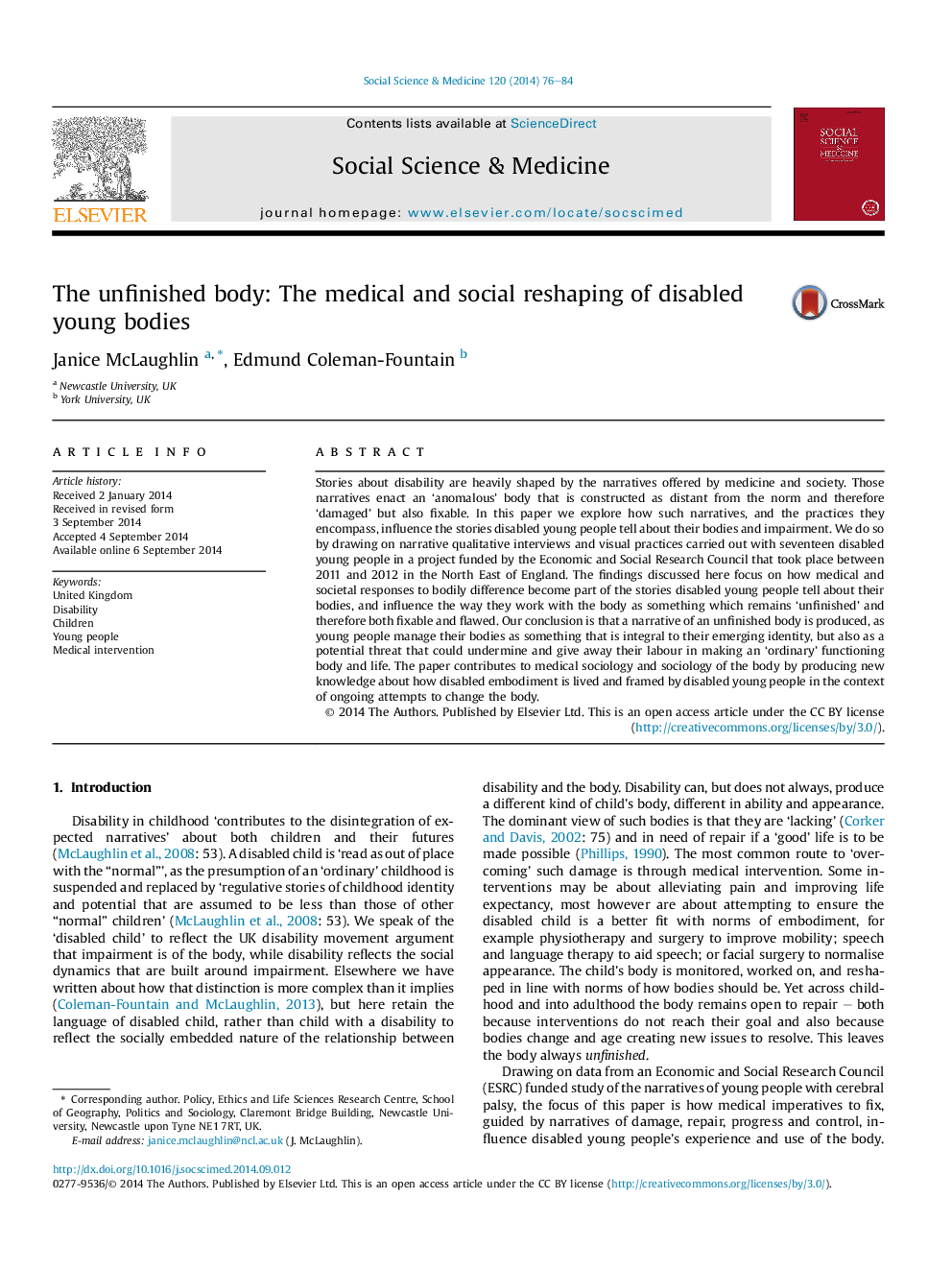| Article ID | Journal | Published Year | Pages | File Type |
|---|---|---|---|---|
| 7334489 | Social Science & Medicine | 2014 | 9 Pages |
Abstract
Stories about disability are heavily shaped by the narratives offered by medicine and society. Those narratives enact an 'anomalous' body that is constructed as distant from the norm and therefore 'damaged' but also fixable. In this paper we explore how such narratives, and the practices they encompass, influence the stories disabled young people tell about their bodies and impairment. We do so by drawing on narrative qualitative interviews and visual practices carried out with seventeen disabled young people in a project funded by the Economic and Social Research Council that took place between 2011 and 2012 in the North East of England. The findings discussed here focus on how medical and societal responses to bodily difference become part of the stories disabled young people tell about their bodies, and influence the way they work with the body as something which remains 'unfinished' and therefore both fixable and flawed. Our conclusion is that a narrative of an unfinished body is produced, as young people manage their bodies as something that is integral to their emerging identity, but also as a potential threat that could undermine and give away their labour in making an 'ordinary' functioning body and life. The paper contributes to medical sociology and sociology of the body by producing new knowledge about how disabled embodiment is lived and framed by disabled young people in the context of ongoing attempts to change the body.
Related Topics
Health Sciences
Medicine and Dentistry
Public Health and Health Policy
Authors
Janice McLaughlin, Edmund Coleman-Fountain,
